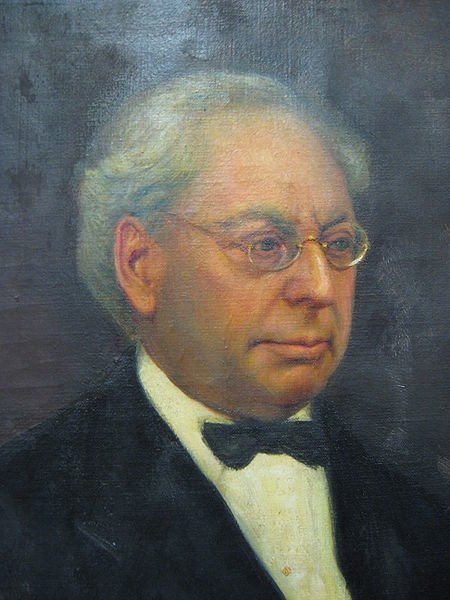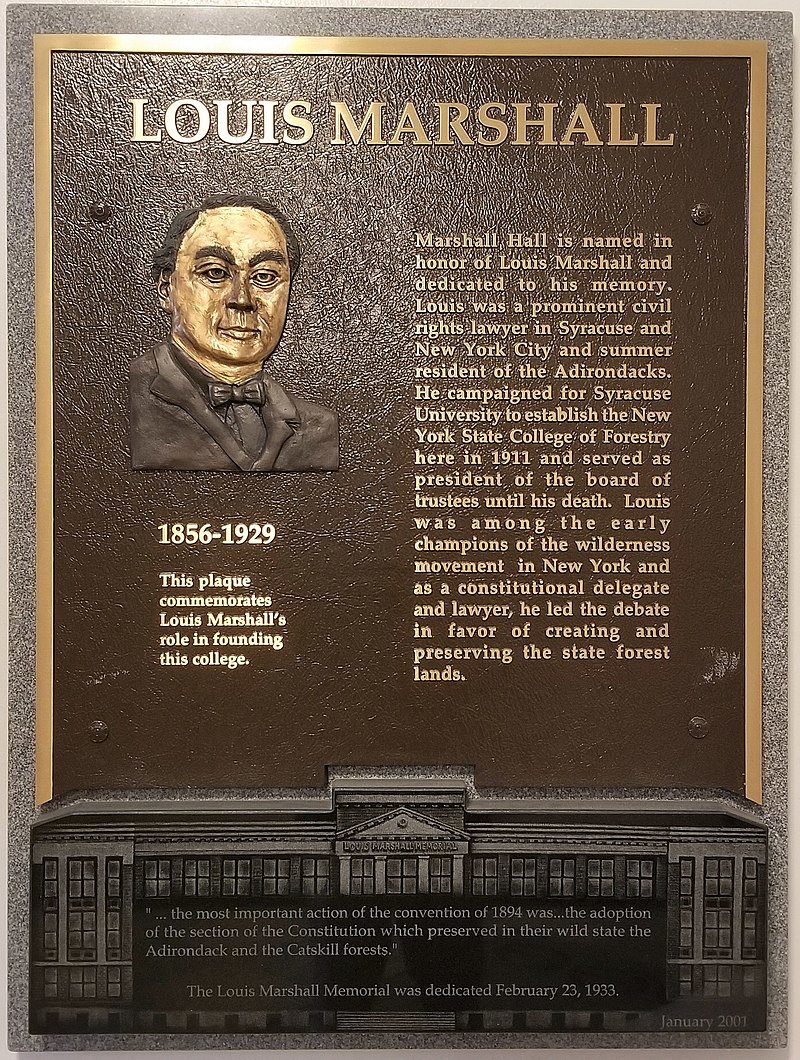מורשת גדולי האומה
בזכותם קיים
beta
Louis Marshall: A Leader in American Jewish Life
Louis Marshall (December 14, 1856 - September 11, 1929) was one of the foremost leaders in American Jewish history. Throughout his life, he was an organizational and legal activist, a champion of civil and political rights, and a bridge builder. Marshall served as the head of the Jewish community and worked tirelessly to secure religious, political, and cultural freedoms for all minority groups.
He was a co-founder of the American Jewish Committee and advocated for Jewish rights. Despite not being a Zionist himself, he supported the Balfour Declaration and the establishment of the expanded Jewish Agency. Marshall believed in the conservation movement and was instrumental in the revival of the New York State College of Forestry at Syracuse University.
Louis Marshall was born in Syracuse, New York, to immigrant parents from Germany. His father arrived in 1849 from Bavaria, and his mother came from Württemberg in 1853. Marshall was the oldest of six children, having one brother and four sisters. At a young age, he was fluent in German and conversed with his mother exclusively in this language. He later learned English and taught himself Yiddish.
After completing his legal studies, Marshall joined the law firm of William Regar. Later on, he began working with his classmate Samuel Untermyer.
On May 6, 1895, he married Florence, the daughter of his partner Samuel's cousin. The couple had four children: James, Ruth, Robert, and George.
In 1905, Marshall was appointed President of the Jewish Theological Seminary of America. In 1906, he co-founded the American Jewish Committee with his friends Jacob Schiff and Cyrus Adler. In 1914, Marshall was part of the legal team that represented Leo Frank, who was accused of the murder of a 14-year-old girl at a pencil factory he managed. Marshall initiated the appeal to the Supreme Court of the United States. Additionally, he was active in the civil rights field and advocated for minority rights on behalf of the NAACP.
After World War I, Marshall participated in the Paris Peace Conference in 1919 as President of the American Jewish Committee and Vice President of the American Jewish Congress. He opposed the proposal by the American Statistic Association to classify Jews as a race. Although he had differences of opinion with Zionist politicians, he supported the establishment of Israel. In light of the rising power of the Nazis in Germany in the 1920s, Marshall estimated in 1924 that there was "not a ghost of a chance that their program [the Nazis'] would ever be carried out, not even to the extent of the smallest fraction of it."
In the cities of Syracuse and Tel Aviv, there are streets named after Louis Marshall, and in Brooklyn, there is a public elementary school bearing his name.
Biography
Louis Marshall was born in Syracuse, New York, to immigrant parents from Germany. His father arrived in 1849 from Bavaria, and his mother came from Württemberg in 1853. Marshall was the oldest of six children, having one brother and four sisters. At a young age, he was fluent in German and conversed with his mother exclusively in this language. He later learned English and taught himself Yiddish.
After completing his legal studies, Marshall joined the law firm of William Regar. Later on, he began working with his classmate Samuel Untermyer.
On May 6, 1895, he married Florence, the daughter of his partner Samuel's cousin. The couple had four children: James, Ruth, Robert, and George.
In 1905, Marshall was appointed President of the Jewish Theological Seminary of America. In 1906, he co-founded the American Jewish Committee with his friends Jacob Schiff and Cyrus Adler. In 1914, Marshall was part of the legal team that represented Leo Frank, who was accused of the murder of a 14-year-old girl at a pencil factory he managed. Marshall initiated the appeal to the Supreme Court of the United States. Additionally, he was active in the civil rights field and advocated for minority rights on behalf of the NAACP.
After World War I, Marshall participated in the Paris Peace Conference in 1919 as President of the American Jewish Committee and Vice President of the American Jewish Congress. He opposed the proposal by the American Statistic Association to classify Jews as a race. Although he had differences of opinion with Zionist politicians, he supported the establishment of Israel. In light of the rising power of the Nazis in Germany in the 1920s, Marshall estimated in 1924 that there was "not a ghost of a chance that their program [the Nazis'] would ever be carried out, not even to the extent of the smallest fraction of it."
Marshall identified himself as a Republican.
In 1929, Marshall passed away while attending a Zionist Congress in Zurich, Switzerland, despite defining himself as anti-Zionist. He had come to the congress to convene the first meeting of the Jewish Agency, which he had helped establish with Chaim Weizmann. He was buried in the Jewish cemetery at "Shearith Israel" in Brooklyn.Legacy
In the cities of Syracuse and Tel Aviv, there are streets named after Louis Marshall, and in Brooklyn, there is a public elementary school bearing his name.
- לואי מרשלhe.wikipedia.org

